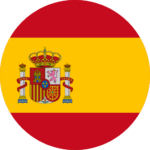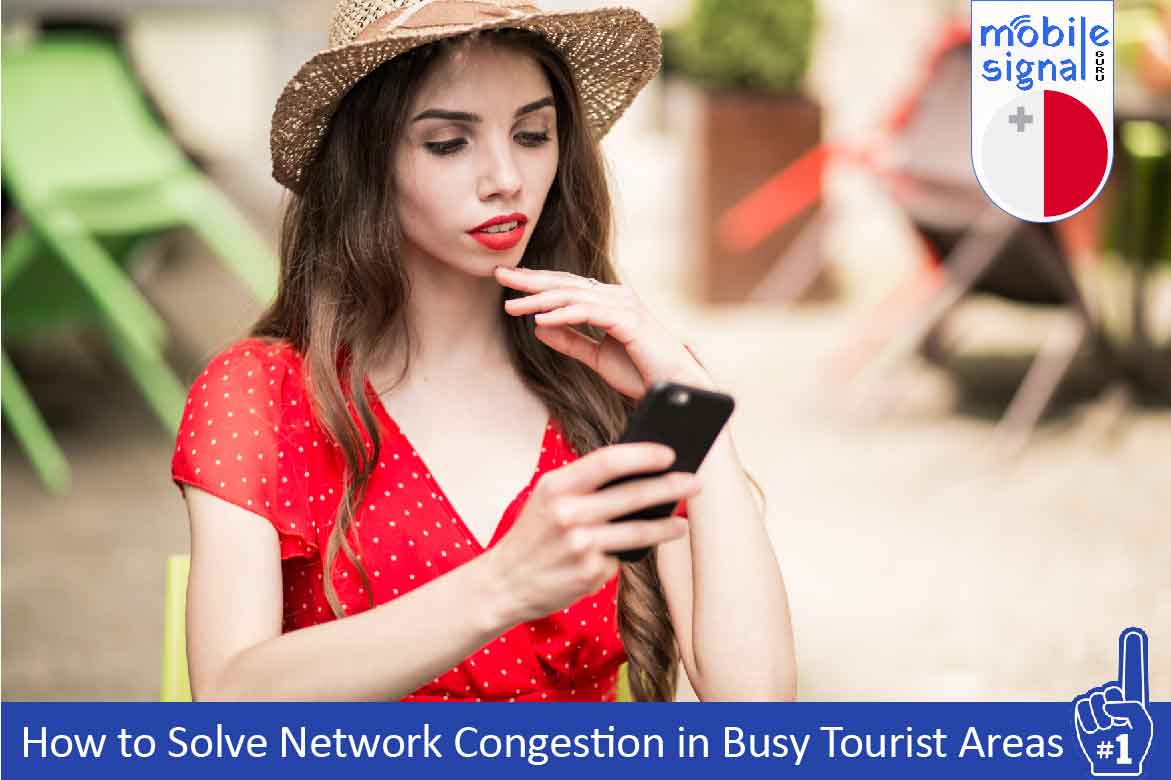Tourist hotspots in Malta, such as Valletta, Mdina, and the Blue Lagoon, are bustling with visitors year-round. While these areas offer breathtaking views and rich history, they also face a common issue—network congestion. As tourists flood these spots, they struggle to stay connected due to poor mobile signal quality. If you’re a visitor or a local relying on your mobile device for communication and internet browsing, this can be frustrating. The good news is that you can easily solve network congestion problem, and one of the most effective ways to do so is by using mobile signal boosters. In this guide, we’ll explore the causes of network congestion in busy tourist areas, how it affects mobile signal, and how to use signal boosters to solve network congestion issues and improve mobile call quality and data speed.
Understanding Network Congestion
Network congestion occurs when too many users are connected to a mobile network, leading to slower speeds and dropped calls. In busy tourist areas, this problem becomes more prominent as the number of users increases. The mobile network is designed to handle a specific number of users at a time. When this threshold is exceeded, the network struggles to manage all the devices, resulting in a degraded experience.
Why Does Network Congestion Happen in Tourist Areas?
- High Tourist Density: Tourist spots attract large numbers of visitors. Mobile phones, tablets, and other connected devices all use the same mobile network. More devices connected at once leads to congestion.
- Limited Network Infrastructure: In older or less-developed areas of Malta, mobile networks may not be equipped to handle a surge in traffic, especially during peak tourist seasons.
- Heavy Data Use: Tourists often use mobile data for maps, social media, and other services. This heavy data consumption increases the strain on the network.
- Geographical Limitations: The natural landscape in Malta, with its narrow streets and hilly terrain, can block or weaken mobile signals.
- Network Interference: With the constant movement of people and vehicles, network interference can also occur, causing signal disruptions.
The Impact of Network Congestion on Mobile Signal
When you experience network congestion, you may notice several issues with your mobile device:
- Slow Internet Speeds: Data download and upload speeds are noticeably slower.
- Dropped Calls: Your calls may disconnect unexpectedly or experience poor call quality.
- Inability to Access Services: Services like GPS, maps, or social media apps may become unusable.
- Poor Voice Quality: You may hear choppy, distorted, or unclear voices during calls.
All these issues affect the user experience, leaving tourists and locals frustrated. But the solution to these problems is simpler than you might think.
Using Mobile Signal Boosters to Solve Network Congestion Issues and Improve Mobile Performance
A mobile signal booster, also known as a cell phone repeater, is a device designed to enhance weak mobile signals. It works by amplifying the signal from a nearby mobile tower and redistributing it to areas with poor coverage.
Signal boosters are especially helpful in places like Malta’s busy tourist areas, where network congestion is common. They can improve both voice call quality and data speeds, making them an essential tool for anyone facing mobile signal issues.
How Does a Mobile Signal Booster Work?
- External Antenna: The booster has an external antenna that captures weak mobile signals from nearby cell towers.
- Signal Amplification: The captured signal is then amplified by the booster’s internal components.
- Redistribution: Finally, the boosted signal is broadcasted throughout the area, ensuring a stronger and more reliable connection.
The result is improved call quality, faster data speeds, and better overall performance for mobile devices.
Key Benefits of Using a Mobile Signal Booster in Malta
- Improved Call Quality: Mobile signal boosters eliminate call drops and enhance voice clarity, ensuring that you never miss an important call while sightseeing.
- Faster Data Speeds: With a stronger mobile signal, tourists can enjoy faster internet speeds, making it easier to access maps, social media, and other apps.
- Wider Coverage: Boosters can extend coverage to areas with weak signals, such as narrow streets in Valletta or areas surrounded by buildings.
- Reduced Interference: Signal boosters minimize network interference, allowing for clearer communication and uninterrupted mobile services.
- Better User Experience: Whether you’re using your phone for navigation, making video calls, or sharing photos online, a booster ensures a smooth and efficient experience.
Types of Mobile Signal Boosters
There are different types of mobile signal boosters available in Malta, each catering to different needs. Let’s take a look at the most popular ones:
Portable Signal Boosters
These compact devices are ideal for tourists who need a temporary solution for network issues. Portable signal boosters are easy to carry and can be used in various locations, whether you’re at a café in Sliema or relaxing by the beach in Gozo.
Fixed Signal Boosters
Fixed signal boosters are designed for long-term use. They are ideal for hotels, restaurants, and other establishments in tourist areas. These boosters cover a larger area, ensuring that every guest has a strong signal throughout their visit.
Vehicle Signal Boosters
For tourists traveling by car, vehicle signal boosters are a great choice. These boosters are installed in vehicles to provide strong mobile signals while on the move. They are particularly useful when traveling between different tourist destinations in Malta.
Home or Business Signal Boosters
Home or business signal boosters are designed to improve coverage within a specific location, such as a home or a small business. These boosters provide consistent signal strength for people who spend extended periods in one location.
Choosing the Right Signal Booster for Busy Tourist Areas in Malta
To ensure you select the right signal booster, consider the following factors:
- Coverage Area: How large is the area you need to cover? Ensure the booster can handle the size of the location, whether it’s a single room or an entire building.
- Compatibility: Make sure the booster is compatible with the local mobile networks in Malta (e.g., Melita, GO, or Epic). Many boosters work on multiple frequencies, making them versatile for use across different providers.
- Strength of Signal: If you’re in an area with very weak signal reception, you may need a more powerful booster. In areas with moderate signal strength, a lower-power booster will suffice.
- Installation Type: Some boosters are easy to install yourself, while others require professional setup. For larger commercial spaces, professional installation might be necessary.
- Price: Signal boosters come at various price points. It’s essential to find a balance between cost and the performance you require.
Steps to Set Up a Mobile Signal Booster
- Choose the Right Location: Place the external antenna in a location where the mobile signal is strongest. This is usually near a window or on a rooftop.
- Install the Booster: Install the booster unit in the area that requires improved coverage. Most boosters come with simple instructions, but professional installation is recommended for larger setups.
- Connect the Antenna and Booster: Once the external antenna is positioned, connect it to the booster unit. Ensure that the antenna is facing the correct direction to capture the best signal.
- Test the Signal: After installation, test your mobile signal. Check if call quality and internet speed have improved. Adjust the antenna if necessary.
- Enjoy Better Connectivity: Once your booster is set up and optimized, enjoy stronger calls and faster data speeds throughout your stay in Malta.
Common Myths About Mobile Signal Boosters
There are some common misconceptions about mobile signal boosters that we should address:
- “Mobile Signal Boosters Work Everywhere”: While signal boosters are highly effective, they depend on having at least a weak signal to amplify. In areas with no signal at all, boosters won’t work.
- “Boosters Are Illegal”: In Malta, mobile signal boosters are legal as long as they comply with local regulations. Be sure to purchase a certified device that follows the country’s rules.
- “Signal Boosters Are Too Expensive”: While some boosters can be costly, many affordable options are available for both short-term and long-term use. Consider your needs and choose a solution that fits your budget.
Conclusion: Why Mobile Signal Boosters Are the Solution to Network Congestion in Malta’s Tourist Areas
Network congestion is a real challenge in busy tourist areas of Malta, but it’s a problem that can be easily solved. Mobile signal boosters provide a simple, effective solution to improve both call quality and data speeds. Whether you’re a tourist or a business owner, investing in a signal booster can make your mobile experience much more enjoyable.
By choosing the right booster, setting it up properly, and maintaining it, you can completely solve network congestion issues avoid the frustration of dropped calls and slow internet speeds. As a result, you’ll stay connected, productive, and ready to explore everything that Malta has to offer.
If you’re visiting or living in Malta’s popular tourist areas, don’t let network congestion ruin your experience. Invest in a mobile signal booster today, and enjoy seamless connectivity no matter where you go.
 Australia (AUD)
Australia (AUD) Denmark (DKK)
Denmark (DKK) France (EUR)
France (EUR) Germany (EUR)
Germany (EUR) Ireland (EUR)
Ireland (EUR) Italy (EUR)
Italy (EUR) Netherlands (EUR)
Netherlands (EUR) New Zealand (NZD)
New Zealand (NZD) Norway (NOK)
Norway (NOK) Spain (EUR)
Spain (EUR) Sweden (SEK)
Sweden (SEK) UAE (AED)
UAE (AED) United Kingdom (GBP)
United Kingdom (GBP) Global Site (USD)
Global Site (USD)
